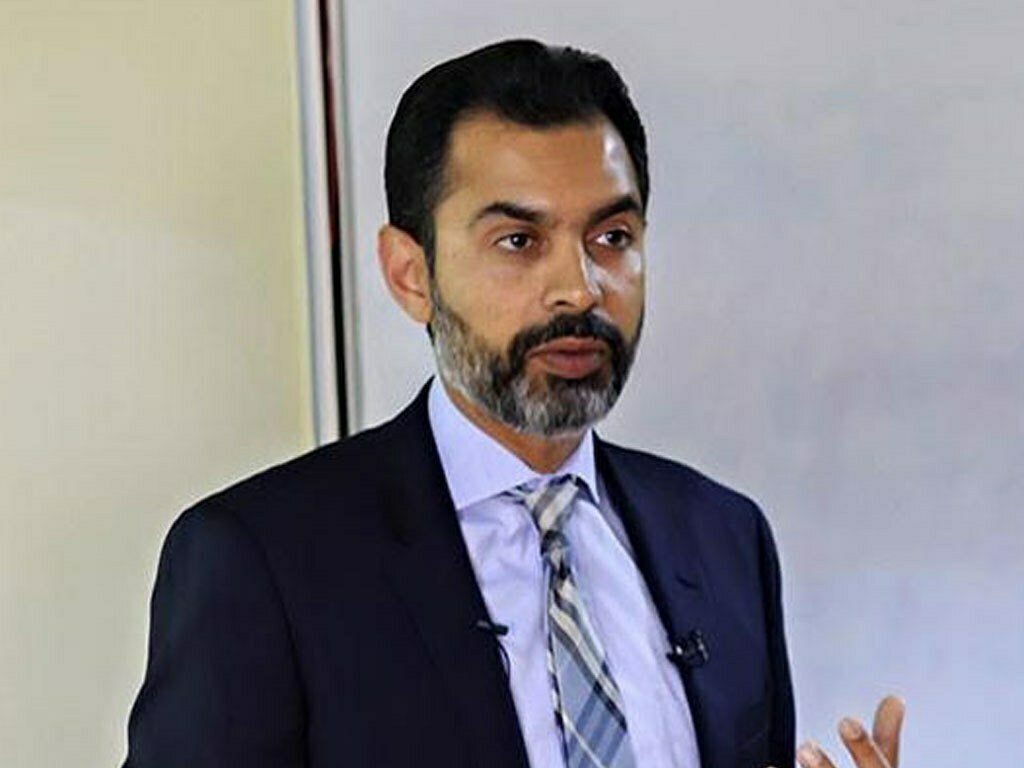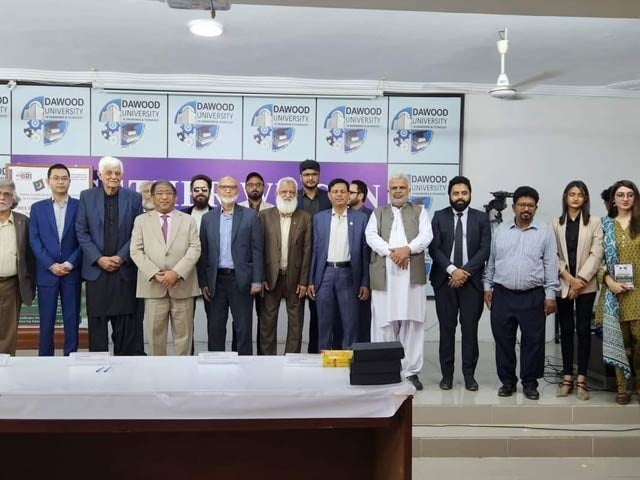ghazi52
PDF THINK TANK: ANALYST

- Joined
- Mar 21, 2007
- Messages
- 101,794
- Reaction score
- 106
- Country
- Location
Digitalization is remodeling real economy, financial sector: Reza Baqir
BR
09 Dec 2021

State Bank of Pakistan (SBP) Governor Dr Reza Baqir has said that digitalization is one of the biggest disruptors of this millennium that is remodeling the real economy and the financial sector on a global scale.
The governor made these remarks while delivering a keynote speech at the 13th Public Lecture Series on the theme of ‘Sustainability and Cyber Resilience’ organized by the Islamic Financial Services Board (IFSB), Malaysia on December 8 in Abu Dhabi, United Arab Emirates.
As per a statement by the State Bank of Pakistan (SBP), Dr Baqir delivered the keynote speech on ‘Cybersecurity in the Era of Digitalization: Regulatory Perspective’.
Speaking on the occasion, he highlighted significant issues and challenges surrounding cybersecurity faced by banks and enlightened the audience on the policy measures and regulatory initiatives undertaken by SBP in this regard.
He remarked that digitalization is one of the biggest disruptors of this millennium that is remodeling the real economy and the financial sector on a global scale, according to the SBP.
Dr Baqir highlighted numerous business opportunities emerging due to recent trends in digitalization, which would spur growth across the economies.
The governor emphasized that interconnection and complexity of the financial system and the massive adoption of technology have created vulnerabilities, which necessitates the policymakers and regulators to stay vigilant and develop befitting policy measures to address the risks emerging through technological disruptions.
Sharing his thoughts on the policy response against the cybersecurity risks, governor SBP stressed upon developing robust cybersecurity protocols and regulations to improve overall governance regime in financial institutions by making cybersecurity as a boardroom agenda of financial institutions.
He also underscored the need to strengthen operational cyber resilience through promoting a culture of collaboration and coordination amongst the global financial industry to respond to cyber threats in real-time, the statement added.
In his concluding remarks, the governor envisaged that central banks may develop and promote centers for regional cooperation and collaboration on cybersecurity.
Earlier, H.E. Khaled Mohamed Balama Governor Central bank of UAE, welcomed the dignitaries and shed light on the significance of cybersecurity amid technological innovations and increased focus of financial sector on digitalization, particularly after the Covid-19 pandemic.
- The SBP governor highlights significant issues and challenges surrounding cybersecurity faced by banks
BR
09 Dec 2021

State Bank of Pakistan (SBP) Governor Dr Reza Baqir has said that digitalization is one of the biggest disruptors of this millennium that is remodeling the real economy and the financial sector on a global scale.
The governor made these remarks while delivering a keynote speech at the 13th Public Lecture Series on the theme of ‘Sustainability and Cyber Resilience’ organized by the Islamic Financial Services Board (IFSB), Malaysia on December 8 in Abu Dhabi, United Arab Emirates.
As per a statement by the State Bank of Pakistan (SBP), Dr Baqir delivered the keynote speech on ‘Cybersecurity in the Era of Digitalization: Regulatory Perspective’.
Speaking on the occasion, he highlighted significant issues and challenges surrounding cybersecurity faced by banks and enlightened the audience on the policy measures and regulatory initiatives undertaken by SBP in this regard.
He remarked that digitalization is one of the biggest disruptors of this millennium that is remodeling the real economy and the financial sector on a global scale, according to the SBP.
Dr Baqir highlighted numerous business opportunities emerging due to recent trends in digitalization, which would spur growth across the economies.
The governor emphasized that interconnection and complexity of the financial system and the massive adoption of technology have created vulnerabilities, which necessitates the policymakers and regulators to stay vigilant and develop befitting policy measures to address the risks emerging through technological disruptions.
Sharing his thoughts on the policy response against the cybersecurity risks, governor SBP stressed upon developing robust cybersecurity protocols and regulations to improve overall governance regime in financial institutions by making cybersecurity as a boardroom agenda of financial institutions.
He also underscored the need to strengthen operational cyber resilience through promoting a culture of collaboration and coordination amongst the global financial industry to respond to cyber threats in real-time, the statement added.
In his concluding remarks, the governor envisaged that central banks may develop and promote centers for regional cooperation and collaboration on cybersecurity.
Earlier, H.E. Khaled Mohamed Balama Governor Central bank of UAE, welcomed the dignitaries and shed light on the significance of cybersecurity amid technological innovations and increased focus of financial sector on digitalization, particularly after the Covid-19 pandemic.



